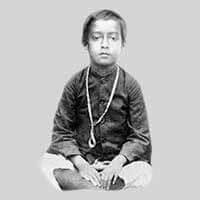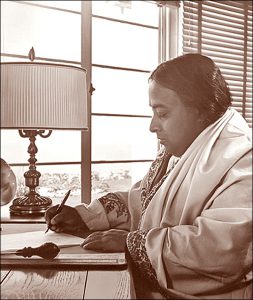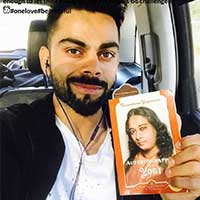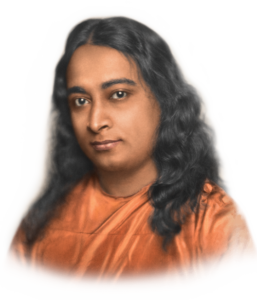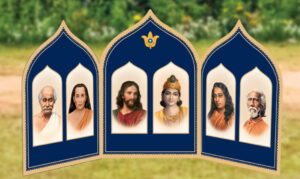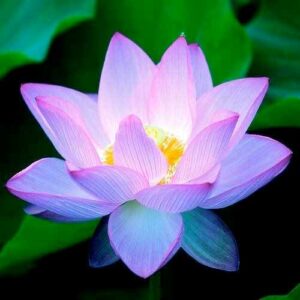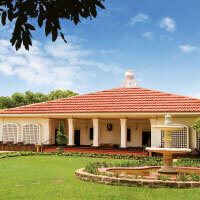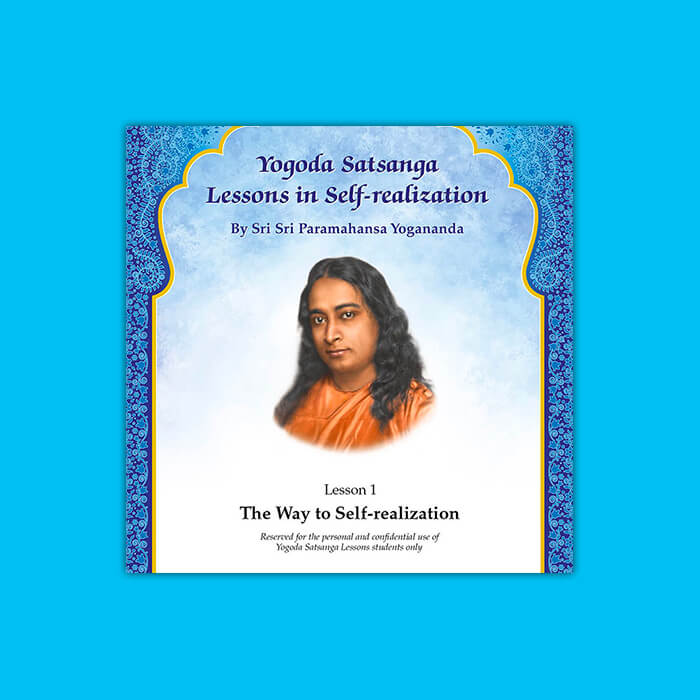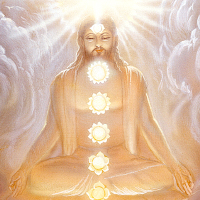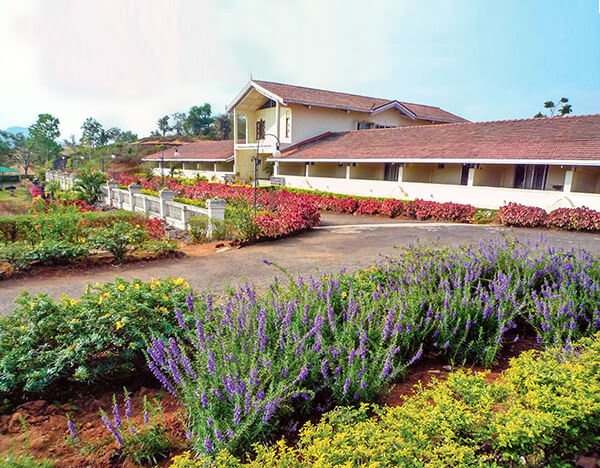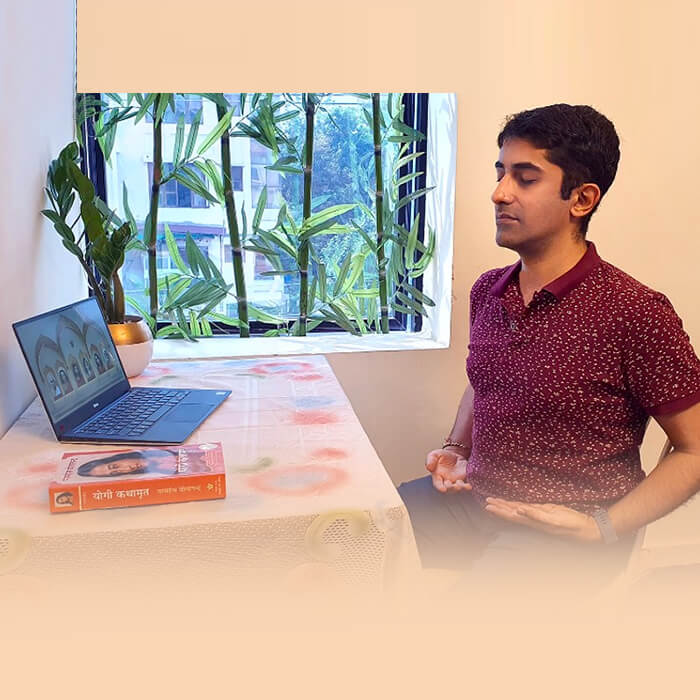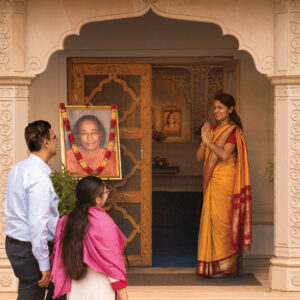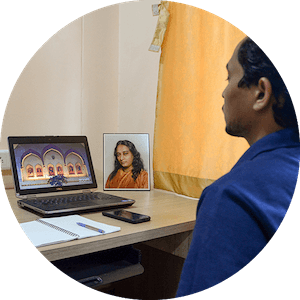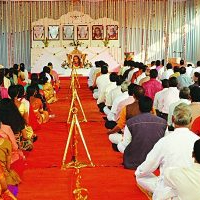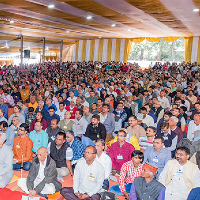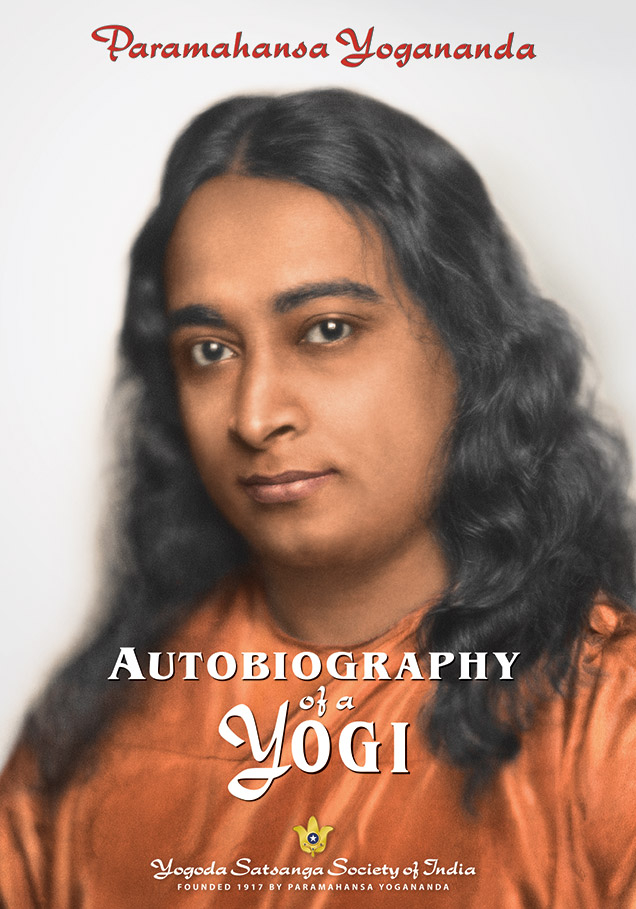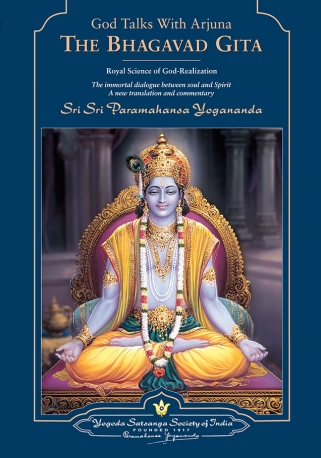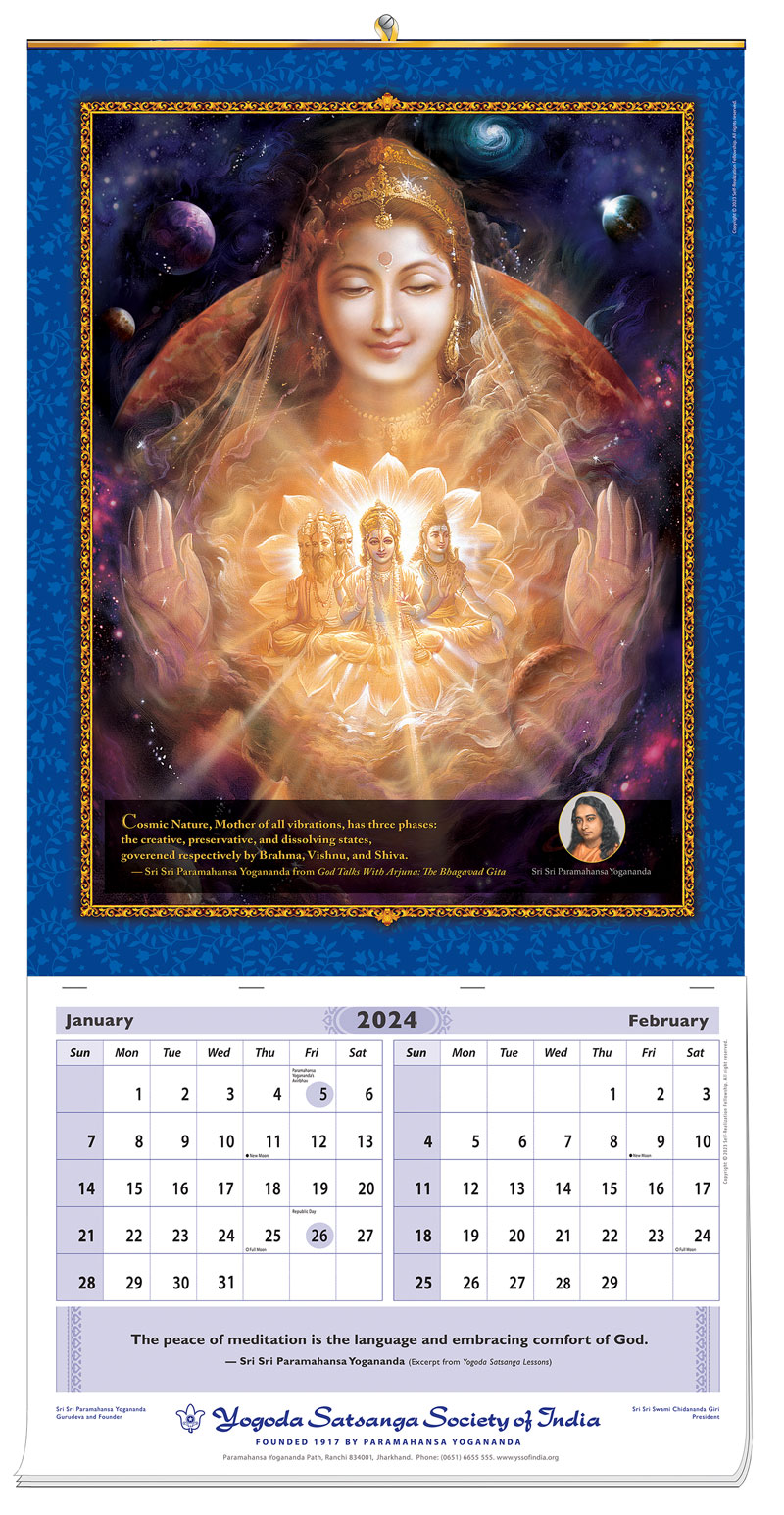Sri Daya Mata’s address at Swami Shyamananda’s memorial service, conducted at the international headquarters of Yogoda Satsanga Society of India/Self-Realization Fellowship, Los Angeles, California, August 31, 1971
We are gathered this morning to pay tribute to Swami Shyamananda Giri[1], faithful devotee and spiritual warrior-protector of Paramahansa Yogananda’s work in India (and around the world) for the past twelve years.
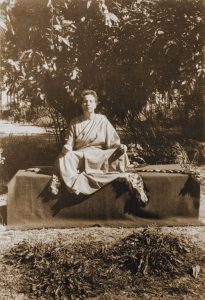
Sri Daya Mata meditating in Ranchi, January, 1959
Swami Shyamananda was born in the Uttar Pradesh section of India, the province of Paramahansa Yogananda’s birth. From earliest childhood he sought the spiritual environment of temples and the company of sadhus (holy men) in India. When Shyamananda was eleven, a venerable sadhu visited his home and expressed keen interest in and love for this child of deep spiritual inclination. Shyamananda had a great yearning at that time to forsake worldly goals and follow the sadhu. But it was not to be.
After the death of his father when he was only nine (his mother had passed on when he was three), he had lived with the family of his father’s closest friend, Raja Bahadur Sati Prosad Garga, in Mahishadal, near Calcutta. This was one of the ruling families of India, who at that time owned some five hundred villages and benevolently governed their inhabitants. Shyamananda was loved and raised as the eldest son of the Garga family.
In Mahishadal he pursued his education, which, as he matured, turned to the study of law. He married his beloved childhood friend, the Gargas’ daughter. But there was always in the background of his mind a deep longing for God. He often asked himself, “Why am I in this particular environment? It is not the life I am destined to lead.”
His marriage was blessed with two daughters; but while they were still infants his wife was stricken ill and passed away. She was twenty. His spirit of dedicated devotion and reverence for his wife is one of the outstanding qualities I remember about him. In all my travels, in all my experience, I have never seen it equalled in any other man. His was a perfect expression of the lofty husband-wife relationship that our guru, Paramahansa Yogananda, had often told us was a unique ideal of India.
With the death of the wife of the young barrister-to-be, that chapter of his life closed. He turned more earnestly toward seeking God. Ironically, it was during this period (1935-36) that Paramahansaji was in India, and Shyamananda was in Puri when Gurudeva was there mourning the passing of his guru, Swami Sri Yukteswar Giri. Apparently it was not yet time for them to meet.
Forsaking the world, Shyamananda spent the next twenty-three years as a wandering monk, seeking out saints and visiting India’s ashrams and holy places of pilgrimage. He built an ashram for one saintly swami, and spent the better part of ten years there, but never took diksha (guru-disciple initiation) or sannyas (the vows of a swami) from that teacher.
When Shyamananda came to see me the first time, during my visit to India in 1958, he had just recently read Autobiography of a Yogi. He was very much influenced and spiritually roused by the wondrous life of our great guru, Paramahansa Yogananda. Up until that time he had followed Jnana Yoga, the path of wisdom and discrimination, after the example of one he had chosen as his spiritual ideal: Swami Vivekananda, world-renowned jnana yogi. Shyamananda said to me, “I have followed this path for many, many years; but still there is something lacking in my sadhana.“(Sadhana means the spiritual beliefs and disciplines one adopts as his way of seeking God.) When Shyamananda told me a little about his own search, I knew what was missing. It was the quality lacking in most of mankind: love for God. This necessary ingredient is not stressed enough in any of the great religions of the world. Rather, man becomes lost in ceremony and theological discussion. In the West many are held by fear of God, thinking of Him as a Great judge, sorting us out when we leave this world and determining to which part of heaven or hell we shall go. That was not Gurudeva’s concept of the Deity. His was a Lord of Love, a God of compassion and forgiveness, One whom we seek, not because we want anything from Him, but because we love Him, and because we are His own.
It was along these lines that I talked with Shyamananda. He said later to some of the ashram devotees, “After I left her presence I knew that she had supplied the missing ingredient I had been seeking: I felt a greater longing for God, and a great love for Him.”
I would like to touch briefly upon our problems in India at that time. Gurudeva had told me before he left his body, “I will not be able to go back to India, but I want you to promise me that you will take the same interest in our work there that I have, and that you will do for Yogoda Satsanga Society in India everything that I would do.” I gave him my word. In 1958 I was finally able to make my first visit to our spiritual motherland.
During the first part of that visit all my dreams were shattered, because Guru’s work had so badly deteriorated. On Christmas Eve I was in the ashram with some of the devotees and my heart was heavy, as there was not among them the spirit I had expected. I silently withdrew from the celebrations and went upstairs to my little room. I meditated long and deeply, and wept bitter tears, because I knew it would be impossible to accomplish anything worthwhile for Guru’s institution in India without the support of some staunch, capable devotee who was a native of that country. An answer to my prayer that night came on January 5th, as we celebrated Gurudeva’s birthday at our Dakshineswar ashram. I saw Shyamananda sitting in the audience. I had met and talked only briefly with him just that once. But this time I saw him sitting off to the right of the crowd—so quiet, so utterly still, locked in meditation. He was outstanding; and I thought, “Here is one who is deeply seeking God.”
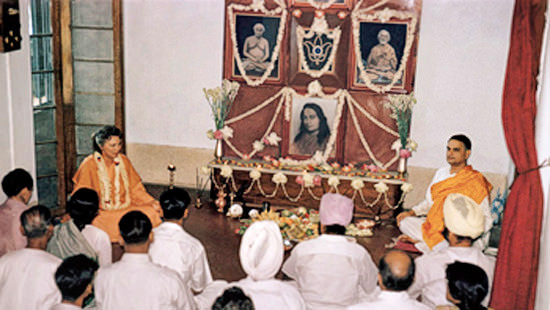
Sri Daya Mata conducts a Kriya Yoga initiation ceremony in the chapel of the YSS ashram in Dakshineswar, 1964. Swami Shyamananda is seen on the right.
After the service he came forward, reintroduced himself, and said, “I would like very much to accompany your party to Ranchi when you go.” It was to be my first visit to Ranchi, where Gurudeva founded his boys’ school. I agreed that he could come along.
During the days that followed, the thought of him remained in the background of my mind. He went to Ranchi in his own car, and we arrived there a few hours after him. Next morning I arose at dawn and was walking on the grounds of the ashram. I was thinking of the days when Gurudeva had founded that school and was living there to guide and inspire it. There were a thousand students then, sitting out-of-doors studying their lessons. I compared that with what I had seen when I arrived—a handful of students and a sorely neglected ashram. My heart was heavy. Then I saw, coming from the opposite direction toward me, this same gentleman who had so impressed my mind. We greeted one another and then walked around the grounds together; and we talked. I began to tell him about Paramahansaji’s dreams for his work in India, and of some of the heartaches. As I did so, I wondered why I was speaking this way to an apparent stranger, and yet I felt he was no stranger to me. He seemed to drink in every word about Gurudeva, and to respond. He also seemed to understand something of the great burden I was carrying.
Later I learned that he had come one day to the ashram and had seen me sitting before the altar in meditation, with tears flowing down my cheeks, praying to God for guidance, because I had been in India almost a year and nothing had been accomplished. He had said that at that moment he vowed he would forsake everything and follow this path.
Throughout these past twelve years he has more than fulfilled that vow; he has not only followed this path, but has served it faithfully. The organisation in India that had been slowly disintegrating since Paramahansaji’s departure for America in 1920, he built into a great and respected institution, with many branch centres throughout India, and many schools, from kindergarten on up through college, for the education of youth. In remote villages, where there would otherwise be no opportunity for children to receive education, we have started schools.
Swami Shyamananda has been the very backbone of our work throughout India. And wherever he has travelled in India and abroad in serving the work, he has commanded not only the respect but also the deep love of the people. He had a great capacity to love; its reciprocation was only natural.
Shyamananda was much inspired by the life of our saintly second president, Rajarsi Janakananda. Rajarsi became his ideal, and I would say that in his own way he was Rajarsi’s Indian counterpart.
Swami Shyamananda lived only for the work of God and Guru. Such capacity and enthusiasm for serving I have rarely seen. Even to the last days of his life, he spoke of little else than the work yet to be done in India. He had set many goals for the growth of that mission. And one evening, when we were talking with him here during his illness, he said to us, “If I must leave this body now, I leave it with but one desire: that I quickly return to this earth again in order to carry on my service to Master’s work. That is the burning desire of my heart.”
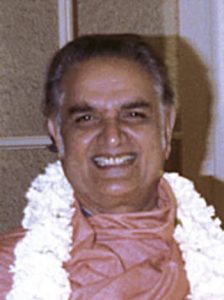
One of the last photos of Swami Shyamananda, Mother Center, 1970
On one occasion, when he was in the hospital, I walked into his room and noticed tears flowing down his cheeks. He was not a man who shed tears easily. I walked up to the bedside and asked, “What is the matter?” As I drew closer and saw the ecstatic expression on his face, I knew they were not tears of sorrow, but of joy. He only slowly became aware of my presence, so drawn within was his mind. And then he said to me, “O Ma, I have just had the most wonderful experience. As I lay here in this bed, knowing full well that my days are numbered, that it may not be God’s will that I recover from this illness, I have had just one prayer in my heart: ‘I want to love You, God. Fulfil that desire! I just want to love You.’ As I prayed, suddenly such love, such joy engulfed me—O Ma, such joy! And then Babaji came. He is all love; oh, so loving! I am utterly filled with that love. What joy, oh, what joy is mine! I know this is the only goal in life.”
Indeed, the ultimate goal of life is not only to work for God and to dedicate all of our activities to Him—whether we be in the world or in monasteries—but to develop such love for God that in our every thought He becomes our daily companion. This ideal flowered fully in Swami Shyamananda Giri. He lived it as few do in this world. All of his activities centered around the thought: “How can I serve You, my Lord?”
Swami Shyamananda Giri leaves a great void in the hearts of all of us who knew him. He leaves also a great void in our work here and in India. As you all know, he was a member of the Board of Directors of Self-Realization Fellowship, the international headquarters of Paramahansa Yogananda’s work, and he was also the General Secretary /Treasurer of our institution in India, Yogoda Satsanga Society. But we all know that one day each of us must answer that call of the Divine. This is not a time of sorrow. There is a void, yet we feel a great peace and happiness; because we know he is resting in the arms of the sweet Divine Mother whom he worshipped so lovingly, and to whom he dedicated his life from the very earliest years of his childhood.
Now we shall proceed with the ascension ceremony, which in India is performed after the departure of the soul from the body, and is part of the ancient Vedic rites conducted at the time of cremation. India’s scriptures teach that fire is a great purifier. The fire burning before you symbolises the cremation of the mortal body, freeing the immortal soul from the bondage of flesh that it might soar heavenward to its home in God.
[Sri Daya Mata lights the symbolic fire and conducts the ascension ceremony, including on this occasion a prayer from the holy Vedas. The service continues with meditation; then the reading of Paramahansa Yogananda’s poem, “Thou and I Are One,” a chant of devotion to God as the Divine Mother, and a closing prayer:]
Heavenly Father, Mother, Friend, Beloved God; Bhagavan Krishna, Jesus Christ, Mahavatar Babaji, Lahiri Mahasaya, Swami Sri Yukteswarji, Gurudeva Paramahansa Yogananda, saints of all religions, we bow to you all.
Divine Mother, Thou art our life, Thou art our love, Thou art the supreme goal sought by all mankind. May Thy love shine forever on the sanctuary of our devotion, and may we be able to awaken Thy love in all hearts.
Bless the soul of Swami Shyamananda Giri. Unite him with Thy vast love. Protect and guide him as his spirit soars heavenward. Let him rest in Thine arms of compassion, gentleness, and understanding. He is Thy child; be with him always. We send him, on the wings of our love, our goodwill and our rejoicing in his freedom from the little body-frame. Lift up his consciousness that it may be forevermore fixed in Thee, for Thou art the supreme love of our souls.
Bless us who are left behind on these mortal shores, that we may carry on our duties in this world as did he, looking on them not as duties but as a blessed privilege to serve Thee through service to our fellowmen.
O Divine Mother, mold Thou our lives according to Thy divine pattern. We lay the flowers of our love, our devotion, at Thy feet of omnipresence. We bow to Thee.
Aum. Shanti. Shanti. Shanti.
[1] Though Sri Daya Mata refers to him throughout the service by his monastic name, Swami Shyamananda had been known to many YSS-SRF members by his family name, Binayendra Narayan Dubey; and when Daya Mata conferred on him the title of Yogacharya (teacher of Yoga), as Yogacharya Binay Narayan. In October 1970 he took formal sannyas initiation (the vows of a swami) from Sri Daya Mata; she then conferred on him the name Swami Shyamananda Giri.


